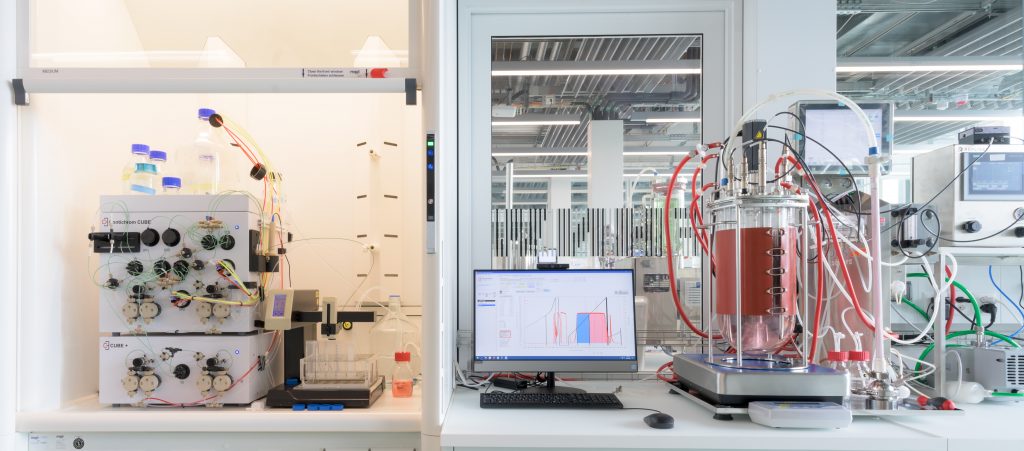Continuous Biomanufacturing

Mammalian steady-state perfusion processes represent a promising alternative to current fed-batch processes for biopharmaceutical production. Due to continuous feeding of nutrients and removal of waste products, a steady-state at a high VCD can be achieved, leading to higher productivities. However, the efficiency of recombinant therapeutic molecules is largely affected by quality attributes of which glycosylation being one of the most critical factors. Controlling the quality profile of biopharmaceuticals during long-term perfusion processes can be challenging. Together with an increase of biosimilars going to market due to patent expiry, matching quality attributes of biosimilars to the reference medical product is a of great interest in biopharmaceutical industries.
Here at FHNW, we evaluate multiple process intensification strategies to increase productivity with a strong focus on their impact on product quality. The bioprocess technology laboratory is equipped with several perfusion upgraded bioreactor systems containing TFF or ATF cell retention devices. State-of-the-art inline sensor technology, but also at-line analyzers including an autosampler system are available for close process monitoring. Furthermore, latest PAT technology such as Raman spectroscopy is in use to get real-time information about bioprocesses.
Check our publications below to learn more about our efforts in continuous biomanufacturing:
Motivated students have the chance to acquire essential skills in upstream processing (USP) during internships such as: Media preparation, sterile filtration of media and feeds, cell expansion, perfusion bioreactor operation of industrial processes, sensor technology to monitor bioprocesses, Raman spectroscopy for chemometrics, At-line analysis including autosampler operation, Design of Experiments (DoE) as well as data analysis using Python. These techniques prepare students well for a smooth transition into various positions in the biopharmaceutical industry.